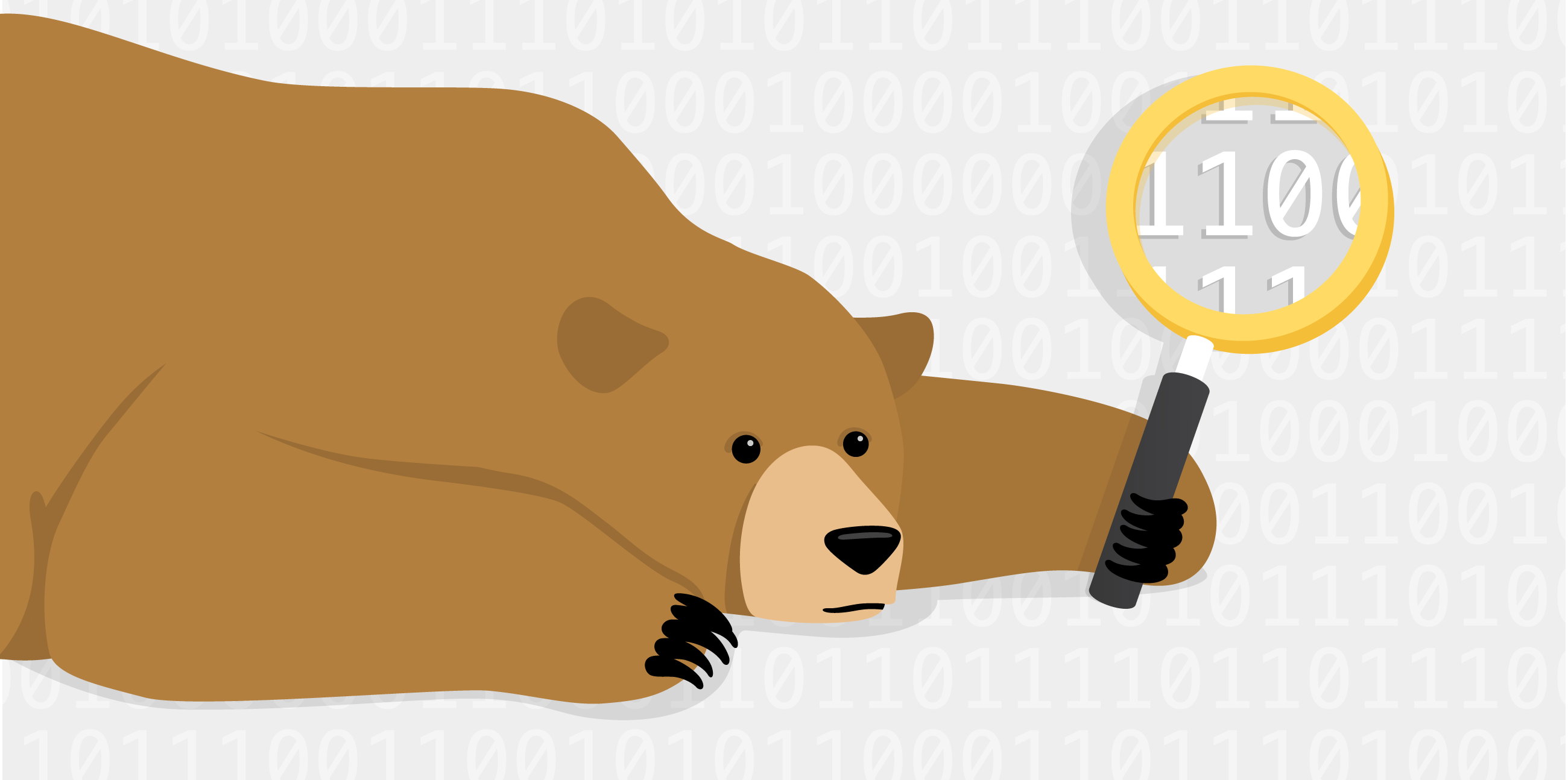TunnelBear Tales: OONI
TunnelBear allows users to browse the internet safely without fear of network restrictions or surveillance. We’re exploring what the often abstract concept of censorship looks and feels like for those on the ground experiencing it. The Open Observatory of Network Interference (OONI) is a community of censorship measurement researchers that track global censorship events in real-time. OONI measurements are published on their Explorer and API, which help inform their reports and insights on internet censorship. They’re an integral player in the internet freedom community, and were gracious enough to share their story.
TunnelBear: Tell us about OONI, how did it come to be? Can you shed some light on the scale of the project?
OONI: OONI was born out of the Tor Project 10 years ago, back in 2011. At the time, a few Tor developers (including my colleague Arturo, who’s OONI’s project lead) started writing scripts to check Tor reachability, and they soon expanded those scripts to a number of other network measurement tests with the goal of understanding various forms of network interference.
This inspired the creation of OONI -- an attempt to create the first open framework that would enable anyone around the world to independently investigate internet censorship.
The general idea behind OONI was to create open methodologies that anyone could review and help improve upon for tests designed to measure internet censorship and other forms of network interference. These tests would then be shipped as part of a free and open source tool that anyone could install and run to independently investigate and detect internet censorship on their network. These test results would automatically get submitted to OONI servers, processed, and openly published.
In short, we created a global crowdsourced system for monitoring, detecting, and increasing transparency of internet censorship around the world -- a decentralized internet censorship observatory, powered by the people worldwide. Over time, we built this system in a way where anyone with a smartphone could easily install the app and run the tests with the click of a button, which led to significant expansion of censorship measurement.
We created a global crowdsourced system for monitoring, detecting, and increasing transparency of internet censorship around the world
Since 2012, we have openly published more than 447 million measurements collected from 22.7 thousand AS networks in 239 countries and territories. Today, OONI Probe is run in around 200 countries and territories every month. All these measurements -- which are now openly published in near real-time -- have supported research and advocacy efforts around the world.
What would be a typical situation in which someone would want to run an OONI Probe test?
We have seen that people typically feel more motivated to run OONI Probe tests when they experience internet censorship, like when they notice a website they care about is blocked, or popular social media apps (such as WhatsApp or Facebook Messenger) that they rely on for information and communication. Measurement data can confirm whether these services are actually blocked, which can also help serve as evidence of blocking for internet freedom activists and researchers.
With the OONI Probe app, you can run tests to measure:
- Blocking of websites;
- Blocking of instant messaging apps (WhatsApp, Facebook Messenger, Telegram, Signal);
- Blocking of circumvention tools (Tor, Psiphon, RiseupVPN);
- Network speed and performance;
- Video-streaming performance.
In general, we see different tests run at different moments in time, depending on what local internet users are experiencing and the questions they’re attempting to answer through OONI Probe tests. There’s also a large part of the OONI community that enables automated testing on their OONI Probe app and runs tests every day, irrespective of experiencing internet censorship.
Internet freedom requires freedom from censorship. At minimum, we need to have transparency about what is blocked, where, why, and how
We strongly recommend running OONI Probe regularly (regardless of whether you actually experience internet censorship or not) because:
- Censorship is often politically motivated and can therefore change depending on political events (we have also seen this in Europe).
- If censorship starts taking place in your country, you’ll have data to prove it (and previous data to compare it against).
- Many cases of internet censorship can go unnoticed, such as the blocking of minority group websites.
- Internet censorship can differ from network to network within a country. Perhaps internet services that are accessible on your network are blocked on others.
- It’s not always clear if an internet service is intentionally blocked, or if it’s inaccessible due to other reasons such as network issues.
- As long as there is no transparency, governments and Internet Service Providers (ISPs) can potentially seek plausible deniability, especially if it’s not clear that a service is intentionally blocked.
- We consider it good practice to keep those in power to account.
- By contributing measurements, you are helping to create a public archive on network interference worldwide. You will enable future generations to see what was happening on the network level of the internet.
What role does measurement play in the fight for internet freedom?
Internet freedom requires freedom from censorship. At minimum, we need to have transparency about what is blocked, where, why, and how (the “how” part can potentially inform circumvention strategies). Censorship measurement enables the public to achieve this.
Censorship measurement offers a practical way to collect empirical data that can potentially serve as evidence of internet censorship. It enables the public to actively monitor, detect, confirm, and respond to internet censorship events around the world.
In practice, OONI Probe is used by researchers and human rights defenders worldwide to monitor and report on emerging censorship events. OONI data supports the #KeepItOn campaign, a global coalition of more than 240 human rights organizations fighting internet shutdowns around the world.
Is there a particular story from you or OONI members you’d like to share that’s influenced your strategy?
About seven years ago, we met talented developers from Venezuela who were collaborating with local journalists and human rights organizations. Even at the time, independent news media websites were blocked in the country. They wanted to use OONI Probe to measure the blocking of websites across many different networks and regions of Venezuela, through coordination with local volunteers. But at the time, OONI Probe was just a command line tool, making it difficult to engage volunteers. To adapt to this need, we collaborated on a Raspberry Pi distribution for OONI Probe, enabling volunteers to easily have tests run automatically by just connecting certain Raspberry Pis to power and WiFi.
Venezuelan community members also informed us that, sometimes, websites are blocked intermittently, requiring rapid testing (rather than daily testing through Raspberry Pis). We then pivoted to create OONI Run, through which they could generate a sharable mobile deep link for coordination with volunteers and rapid OONI Probe testing. This was helpful during the political crisis in Venezuela, when independent news media and political opposition websites were blocked intermittently. Digital rights groups in Venezuela used OONI Run to coordinate with communities across the country on testing of those websites as blocks emerged.
In countries that experience pervasive forms of censorship, the use of VPN is essential for accessing platforms like Facebook or WhatsApp, which are their main sources for information and communication
Because our community is so essential to our work, our strategies have always been informed directly by community needs. We develop new OONI Probe tests and ship new features based on community needs and censorship trends.
You’re involved in a lot of collaborative projects with OONI members in censored environments, would you be able to shed some light on what their day-to-day looks like given those circumstances?
Many human rights defenders in censored environments rely on VPN like TunnelBear to circumvent blocks and access online information and communications platforms. In countries that experience pervasive forms of censorship, the use of VPN is essential for accessing platforms like Facebook or WhatsApp, which are their main sources for information and communication.
In Myanmar, for example, access to Facebook remains blocked on several networks, which makes the use of VPN even more essential. Up until recently, internet users in Uganda could not use online social media platforms without paying the OTT tax (commonly referred to as the “social media tax”) -- this has now been replaced by a new tax on data packages.
In both Myanmar and Uganda, ISPs blocked a number of VPNs as well, likely in an attempt to prevent internet users from circumventing censorship. Similarly, we have observed blocking attempts against a number of circumvention tool websites in Azerbaijan, where numerous independent news media websites are blocked. Around the world, we observe the blocking of VPNs in correlation with other major censorship events (often involving the blocking of social media or news media). But it’s often unclear whether such blocks are effective, as circumvention tools sometimes include built-in circumvention techniques. This is why we think that it’s important to measure the reachability of circumvention tools (OONI Probe currently includes tests for Tor and Psiphon).
Human rights defenders in restrictive countries also use tools like Tor for online privacy, security, and anonymity; GPG for encrypted emails; Signal for encrypted instant messaging -- in addition to a variety of other digital security tools.
What do you think is needed to further support the censorship measurement community?
Thanks for asking! I think the best way to support the censorship measurement community is to get involved. There are many ways you can get involved with OONI censorship measurement (depending on your skills, background, and time availability):
- Run OONI Probe. Regardless of technical skills, you can install OONI Probe, tap a button to run tests, and contribute measurements. By enabling automated testing in the app settings, you can contribute measurements every day without having to remember to run OONI Probe.
- Translate the OONI Probe apps. By translating (or reviewing existing translations of) the OONI Probe apps, you can enable more communities to measure internet censorship.
- Suggest URLs for testing. The censorship findings are only as interesting as the websites that are tested. You can help us improve the quality of measurements by adding websites that you think should be tested for censorship.
- Contribute a network measurement test for OONI Probe. OONI Probe was created based on open methodologies and frameworks to enable community members to contribute their own network measurement tests. If you are a developer and this interests you, please reach out to the OONI team for coordination.
- Tell censorship stories through OONI data. If you are a researcher, advocate, or journalist, we encourage you to dig through OONI data, discover untold censorship stories, and share them with the public. OONI measurements from across the globe are openly published in near real-time, enabling you to track and respond to censorship events as they unfold!
There are also a number of other great censorship measurement projects that you can get involved with and support. For example, Censored Planet publishes open data on censorship measurement collected through remote measurement techniques. The Internet Outage Detection and Analysis (IODA) project provides near real-time alerts on internet outages around the world.
Sincerely rawrs,

TunnelBear is a very simple virtual private network (VPN) that allows users to browse the web privately and securely. It secures browsing from hackers, ISPs, and anyone that is monitoring the network. TunnelBear believes you should have access to an open and uncensored internet, wherever you are.

